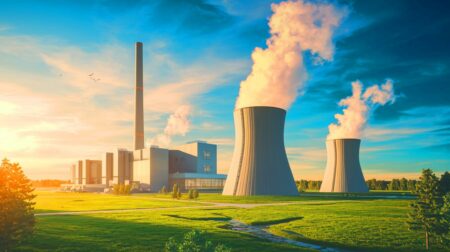As we seek to wean ourselves off fossil fuels, we’ll need to find alternative ways to power our economies and lifestyles. Nuclear power, wind power, solar power and hydropower all help us do that to ever larger extents. Yet there are as yet untapped sources of potential energy.
Take this one: Lakes and reservoirs in the United States could generate 325 gigawatts of power, which would account for 70% of the country’s output. Nor would that vast untapped source come in the form of yet more dams, which could cause massive environmental harm. Rather, it would come through harnessing water evaporation.
A team of scientists at Columbia University in the US recently published their findings in the journal Nature Communications, arguing that if tapped, water evaporation could generate plenty of clean energy. “We have the technology to harness energy from wind, water and the sun, but evaporation is just as powerful,” stresses Ozgur Sahin, a biophysicist who worked on the project. “We can now put a number on its potential.”
Sahin and his team have devised a machine, a so-called evaporation engine. They attached Bacillus subtilis spores onto thin films of tape, whereby they can control how the spores expand and shrink according to the amount of humidity that is made available to them through a shutter. When it’s dry, the spores curl up, which causes the tape to contract, much like a muscle contracts. These contractions can then be harnessed to generate electricity when linked to a generator.
“Evaporation comes with a natural battery,” the study’s lead author Ahmet-Hamdi Cavusoglu says. “You can make it your main source of power and draw on solar and wind when they’re available.”
Having said that, creating a system to harness the power of evaporation on a large enough scale will pose significant technological and possibly environmental challenges. Yet the American team’s research is a promising new step.
Did you like it? 4.5/5 (26)








